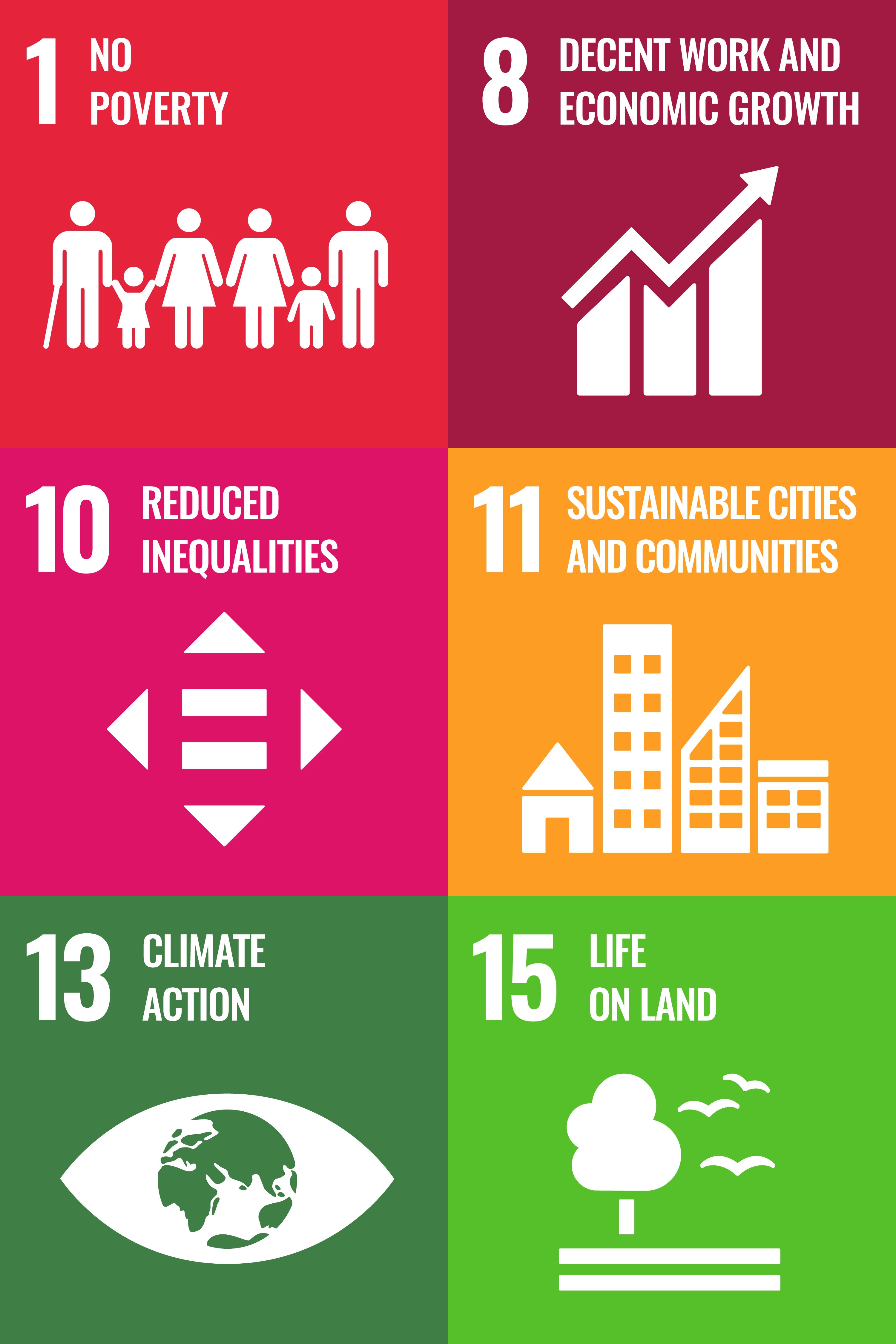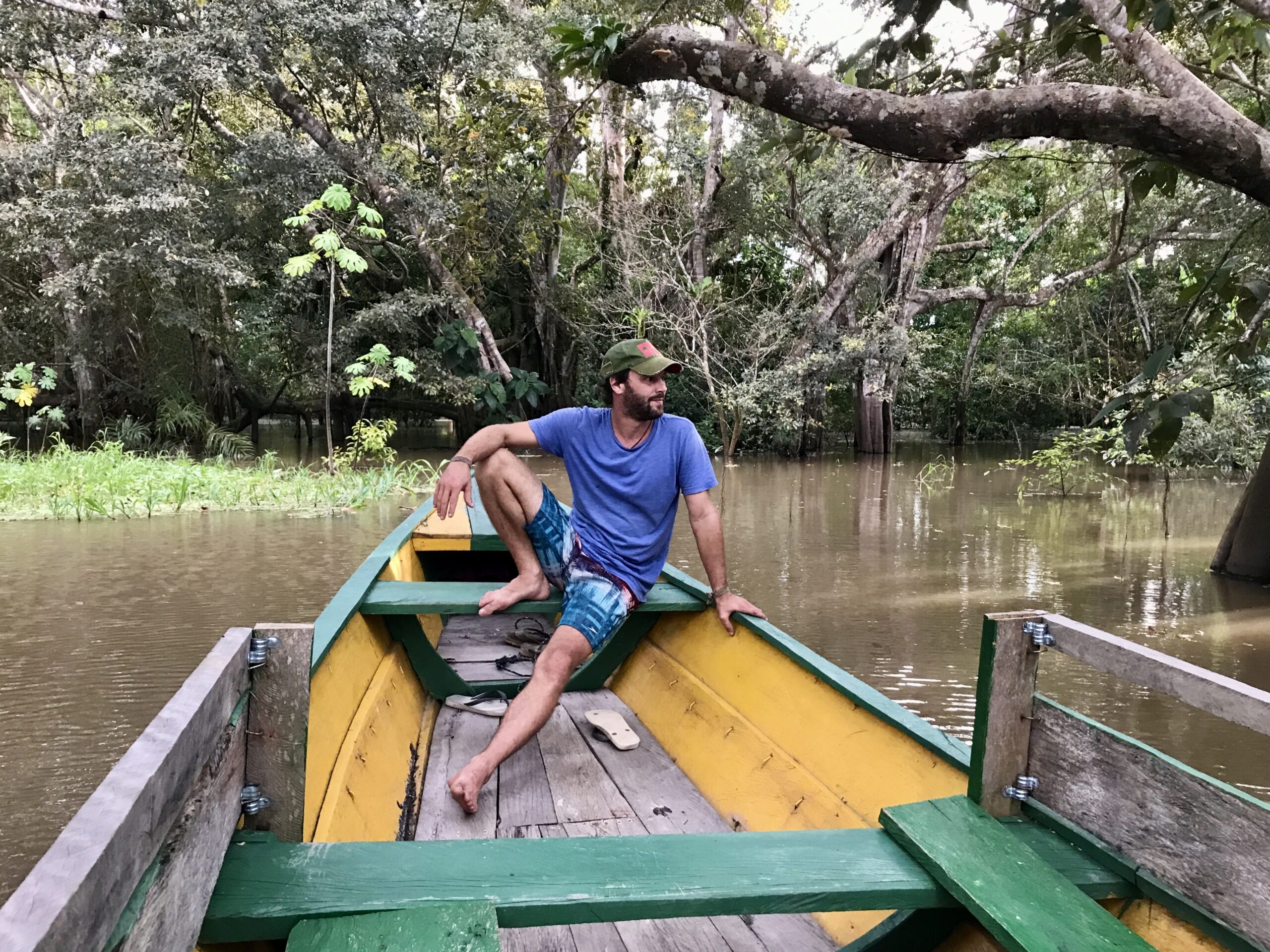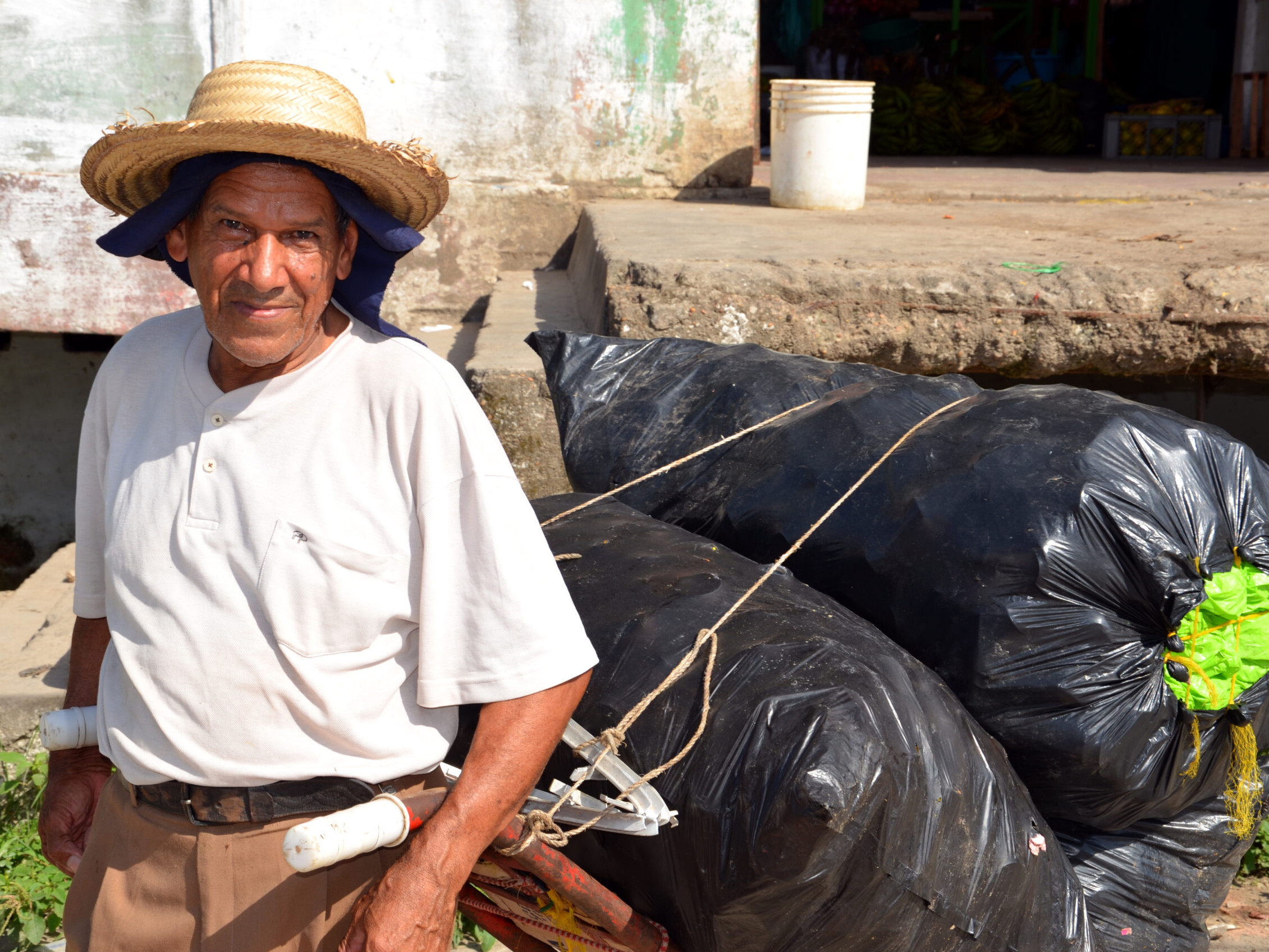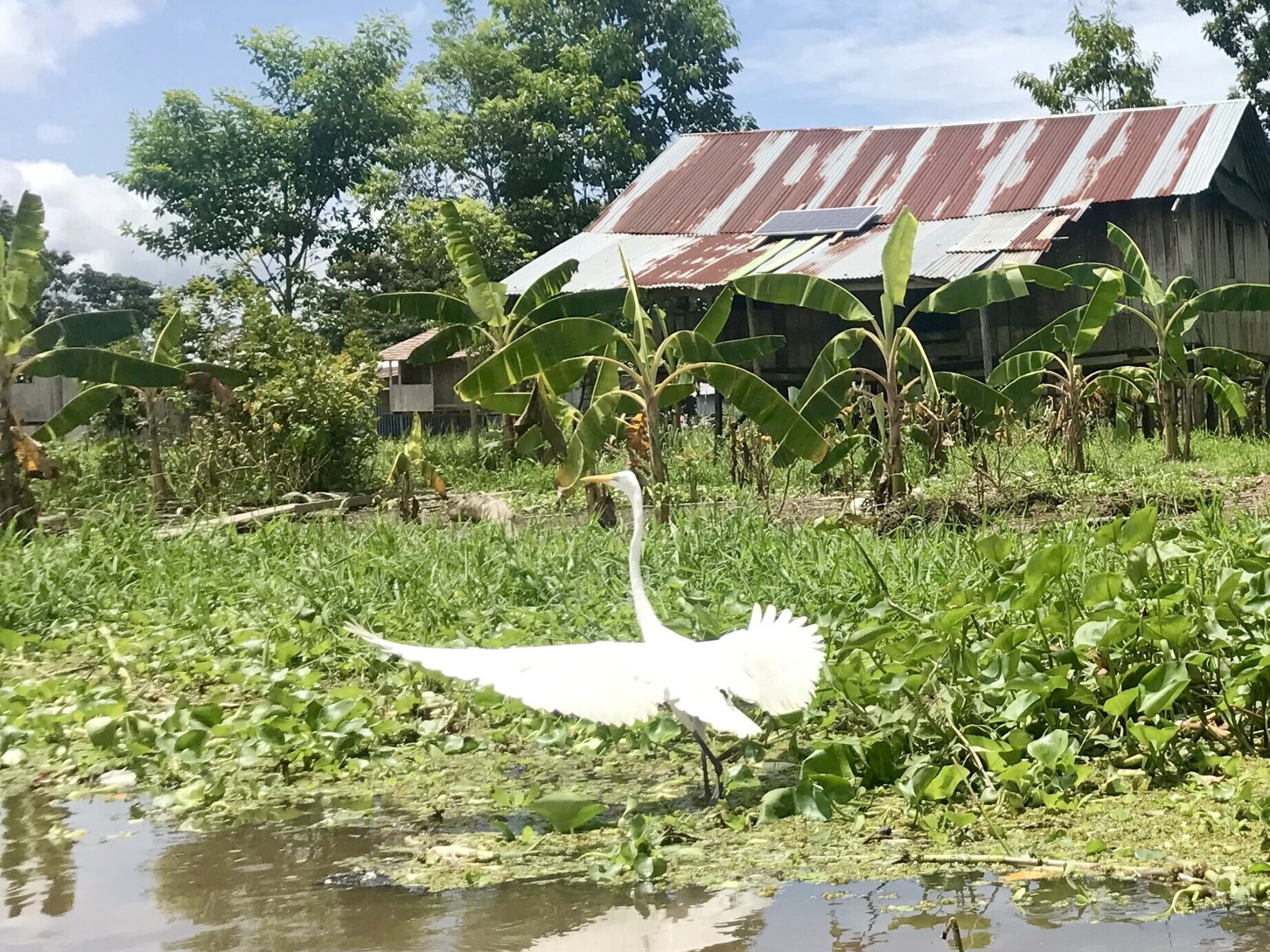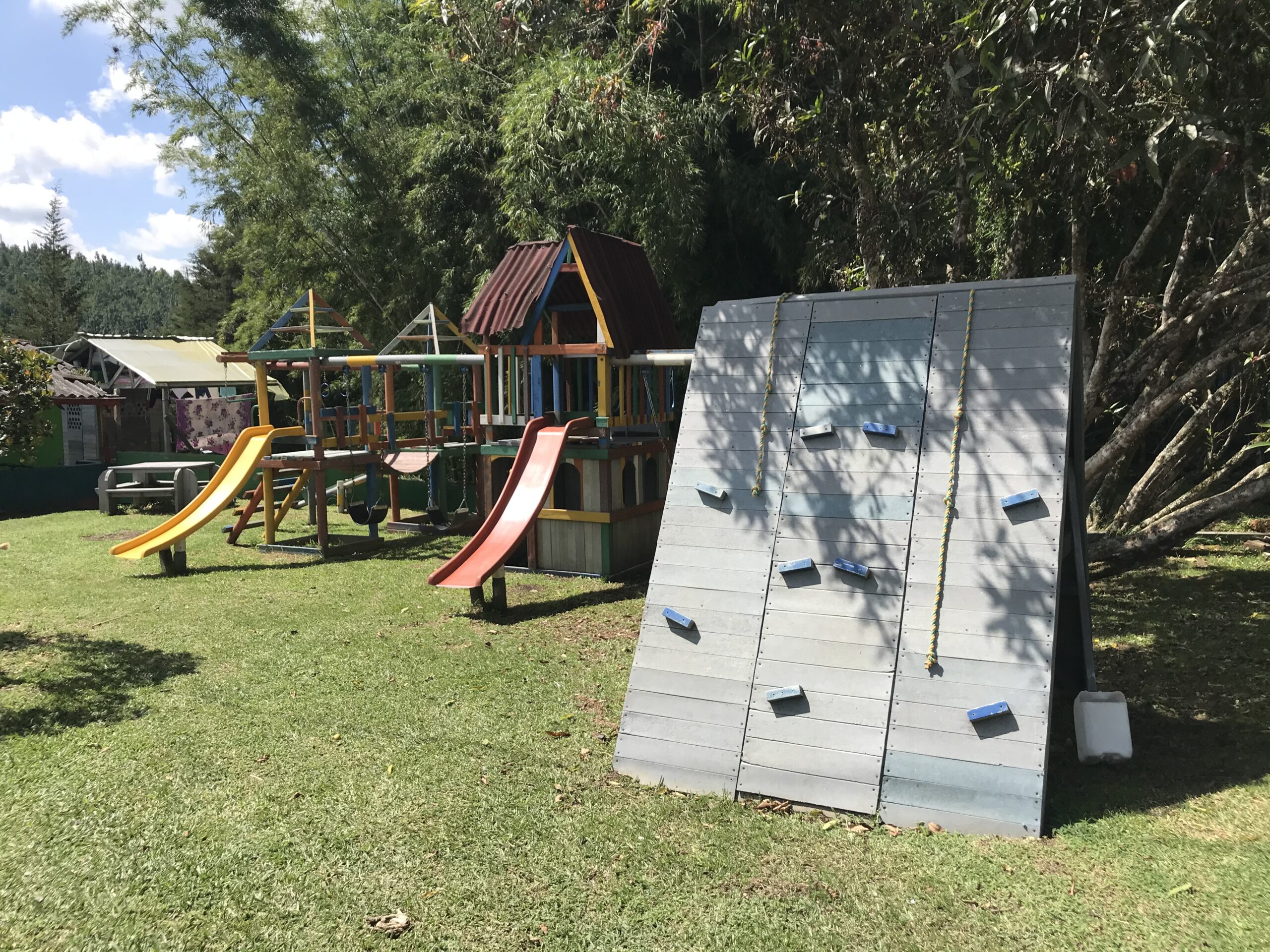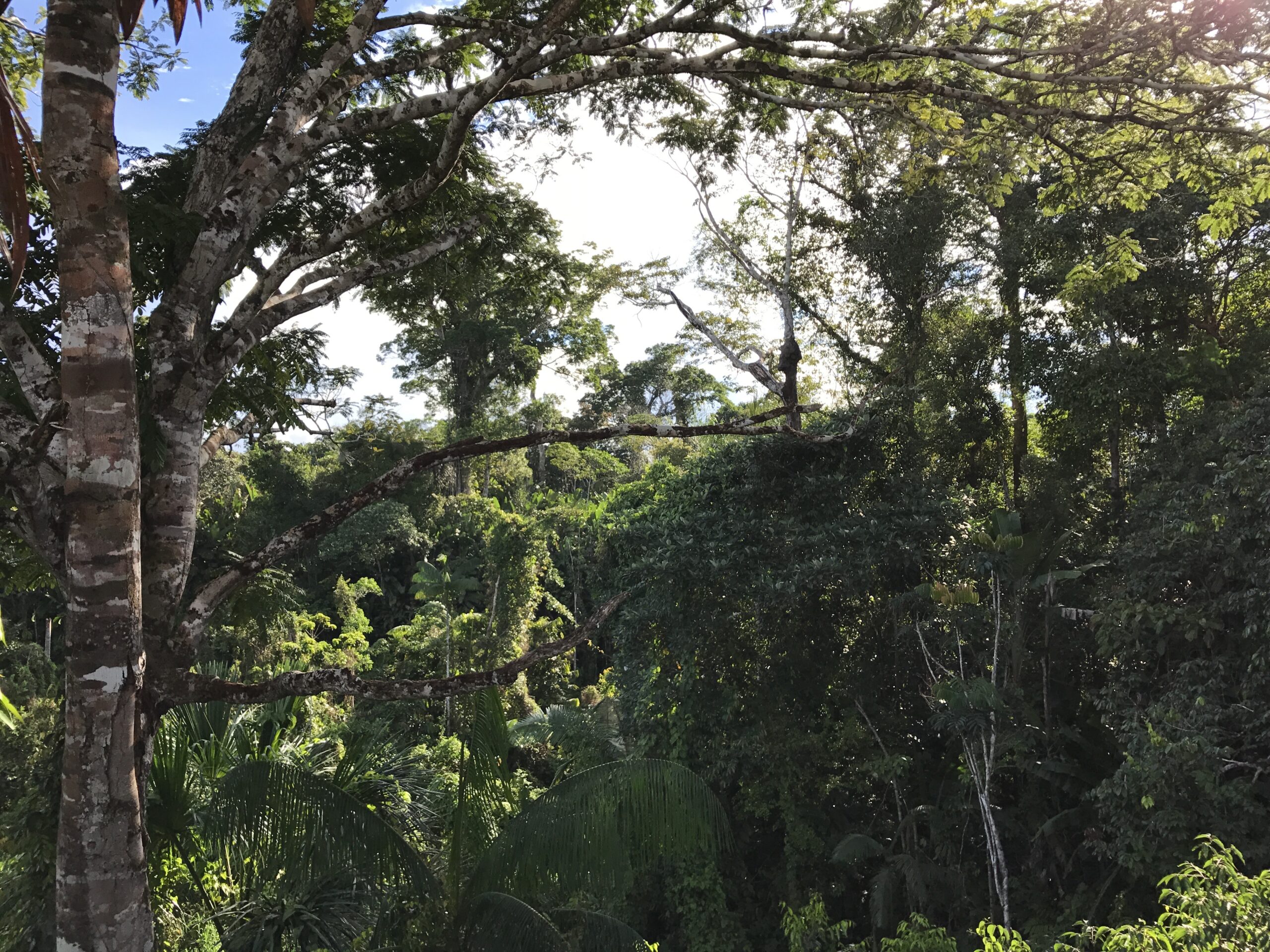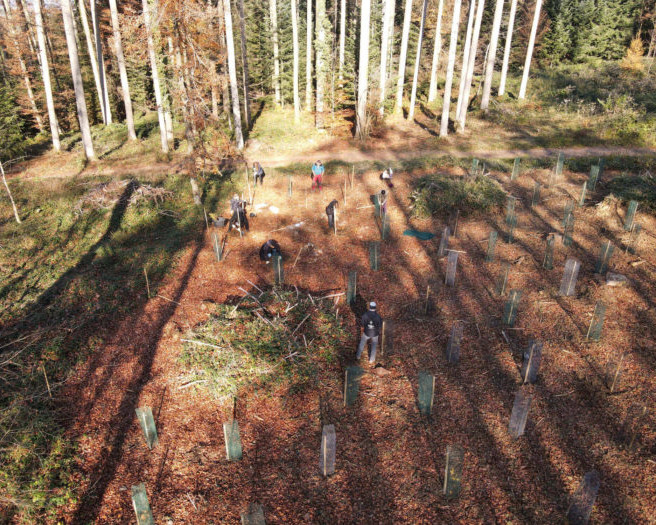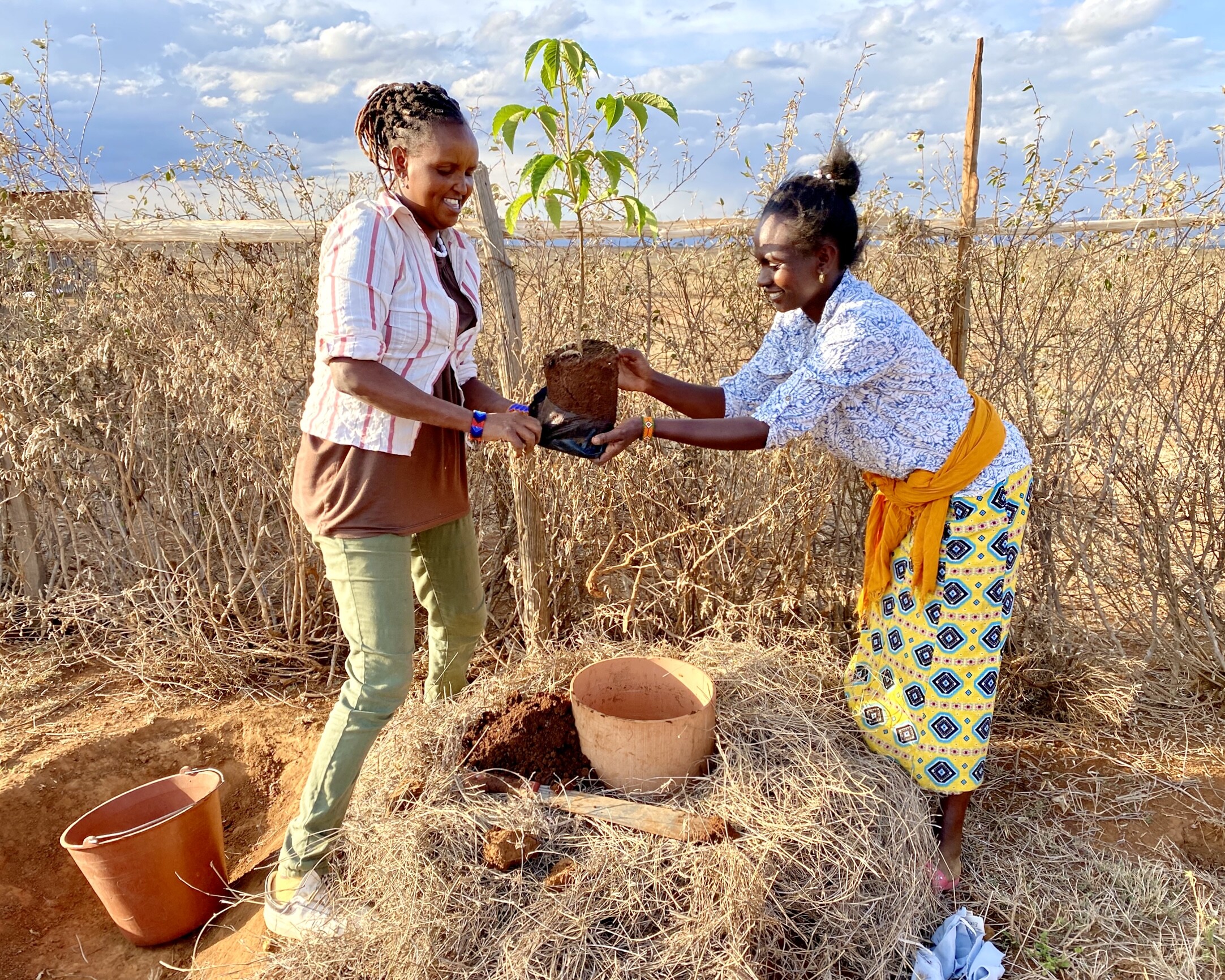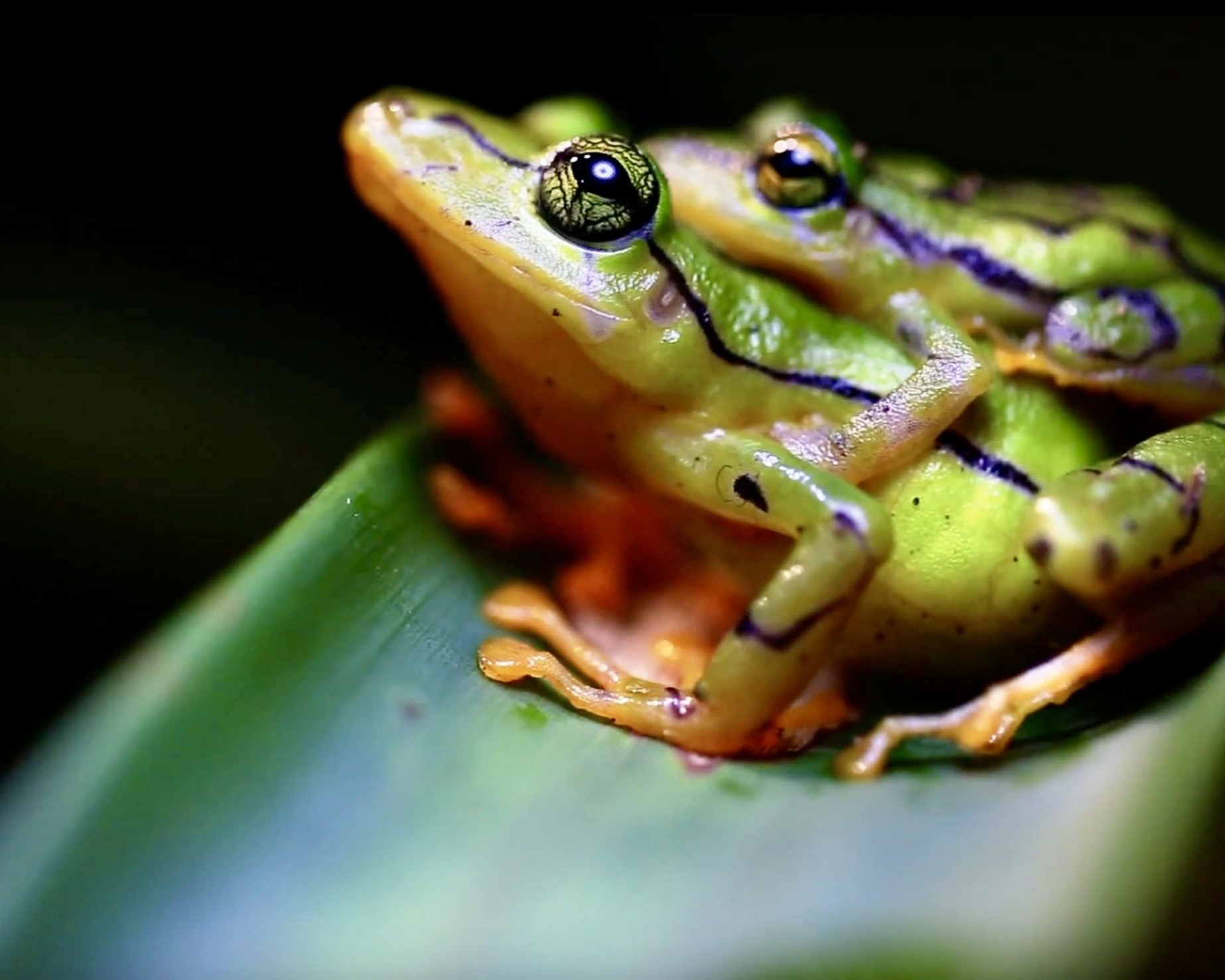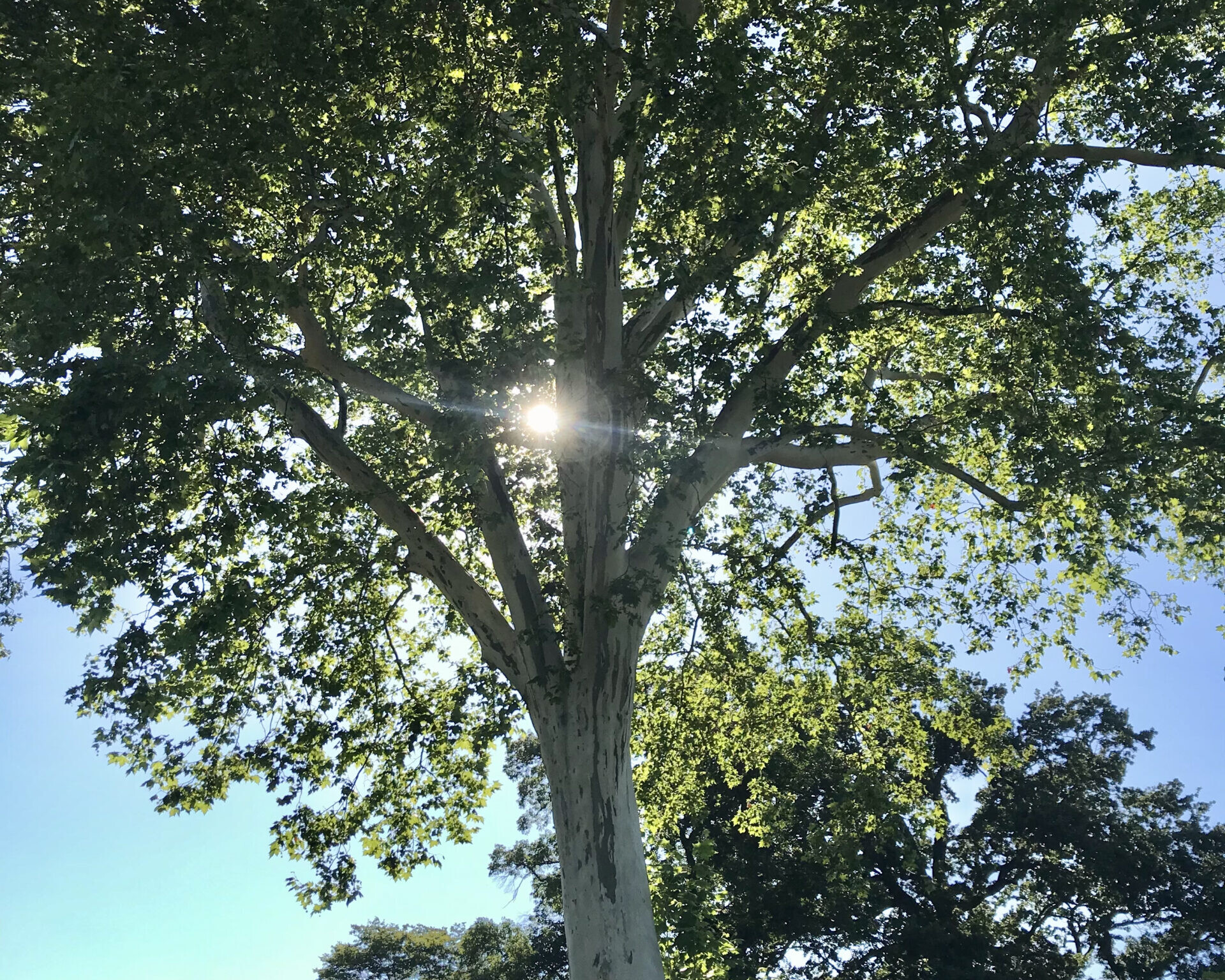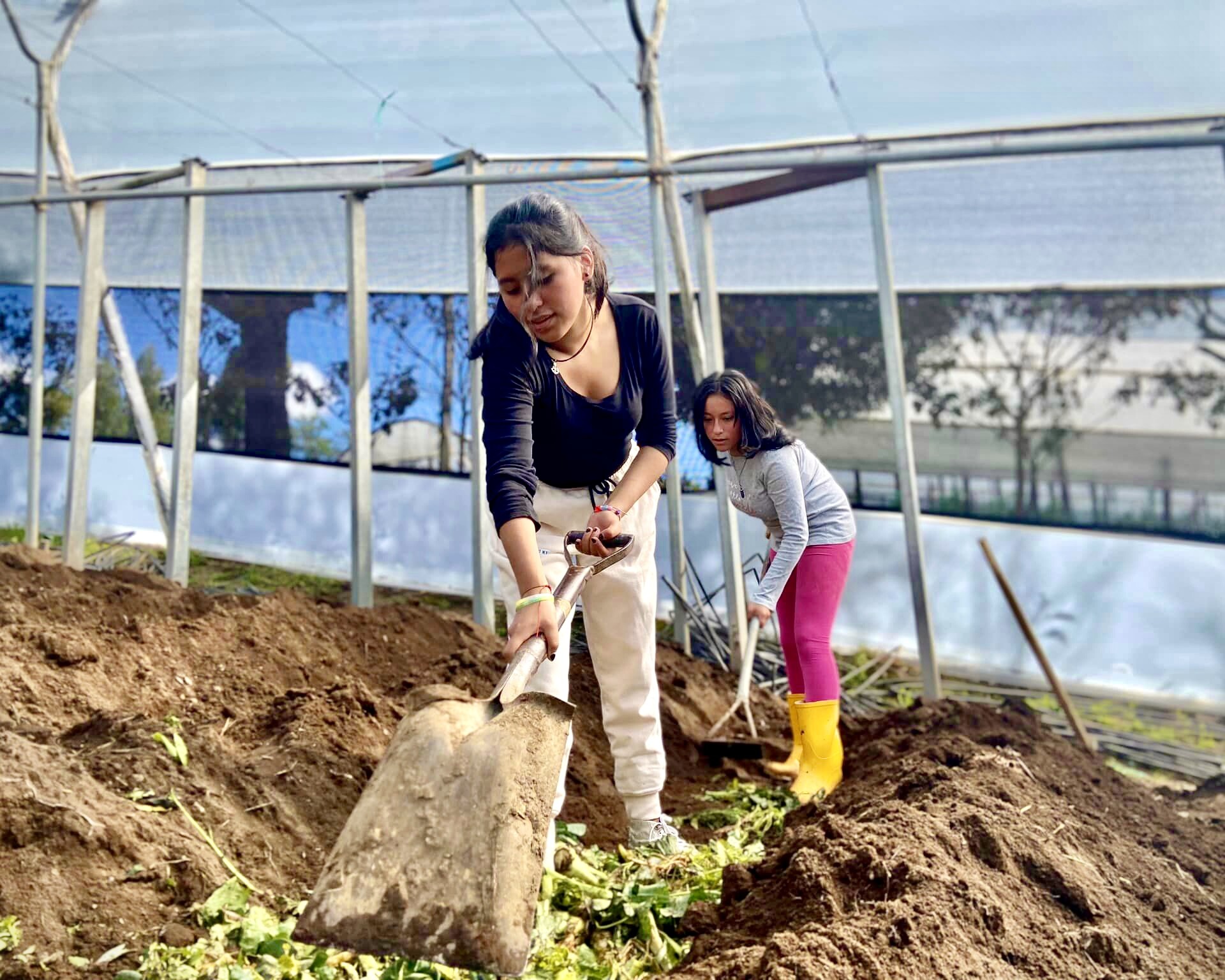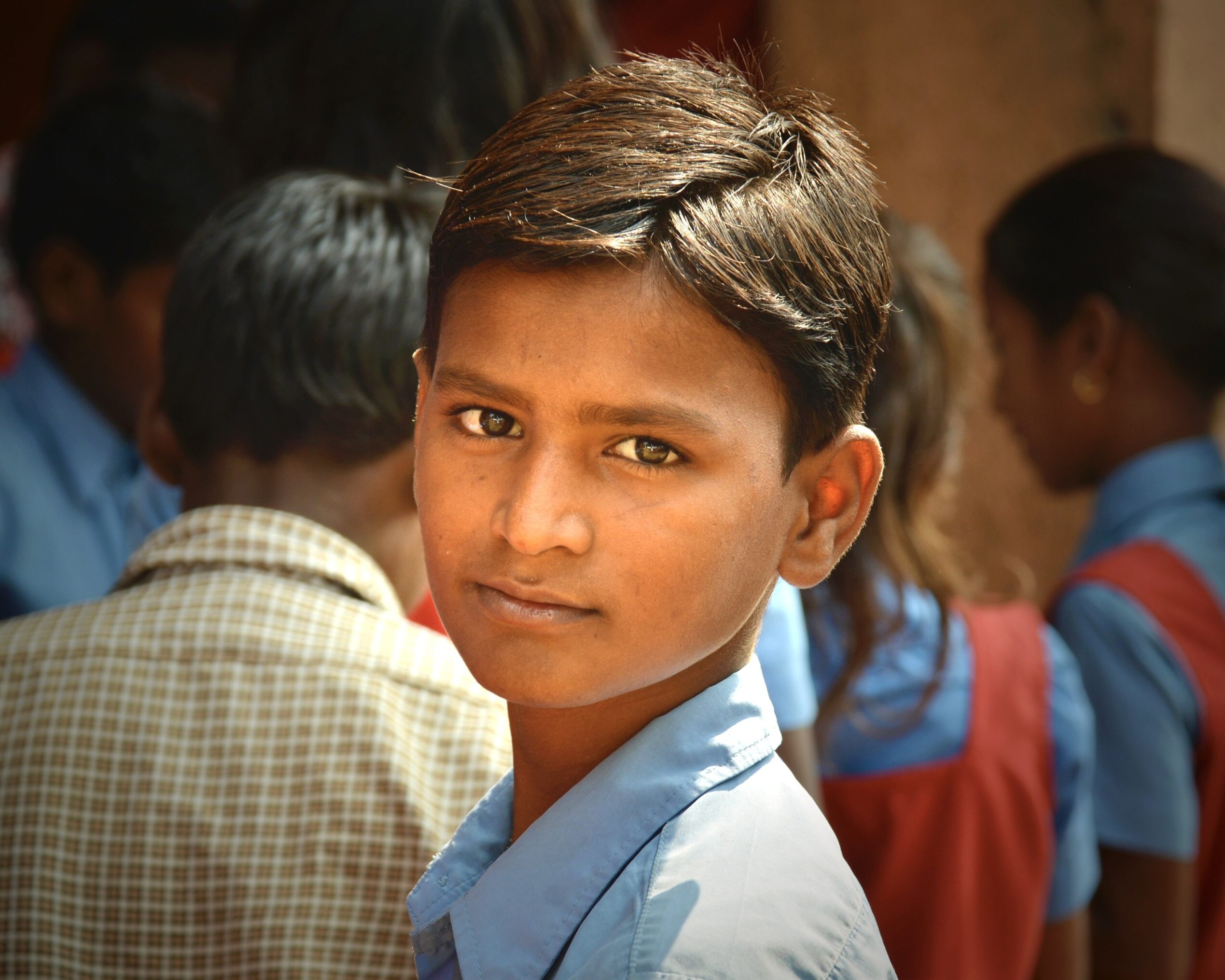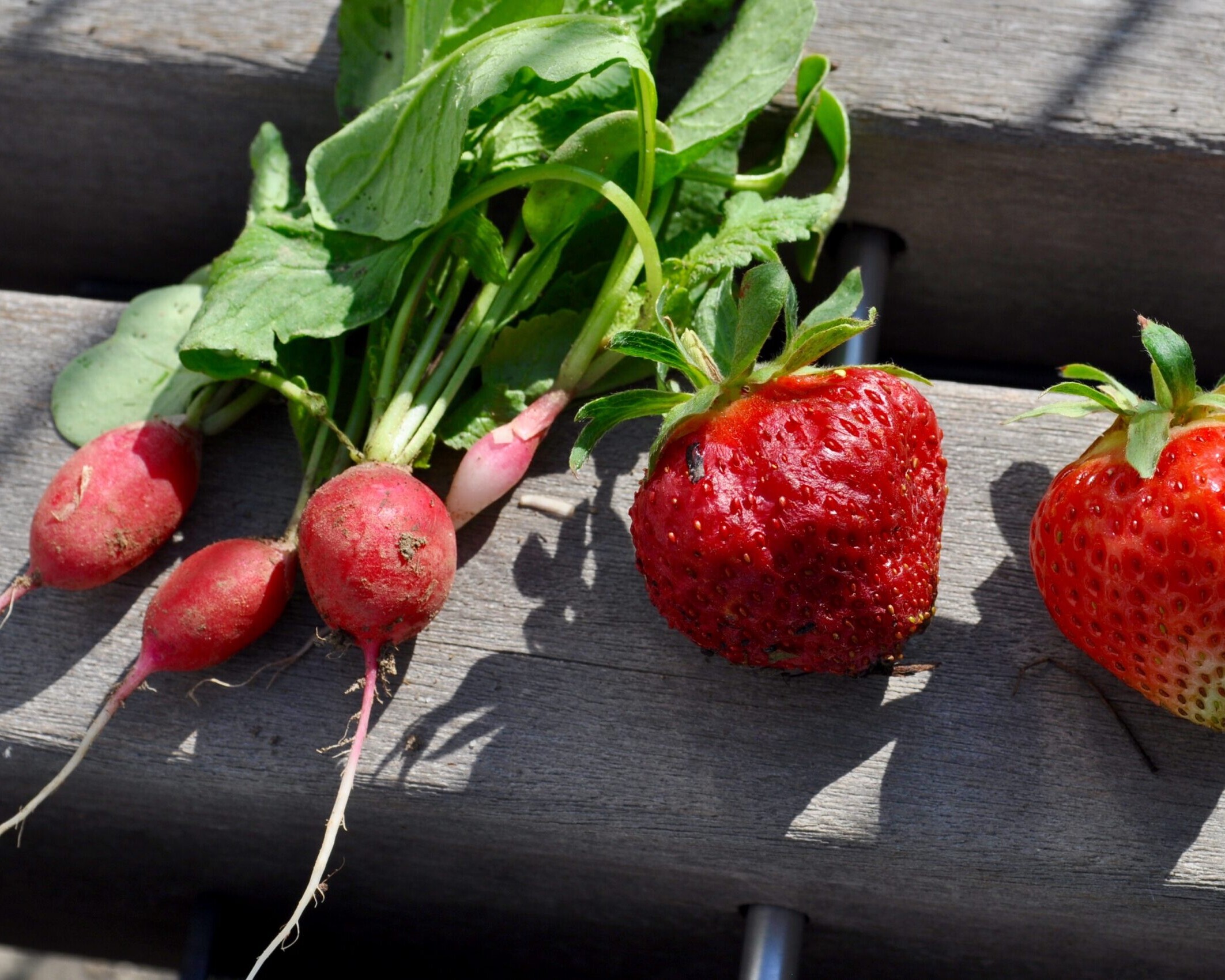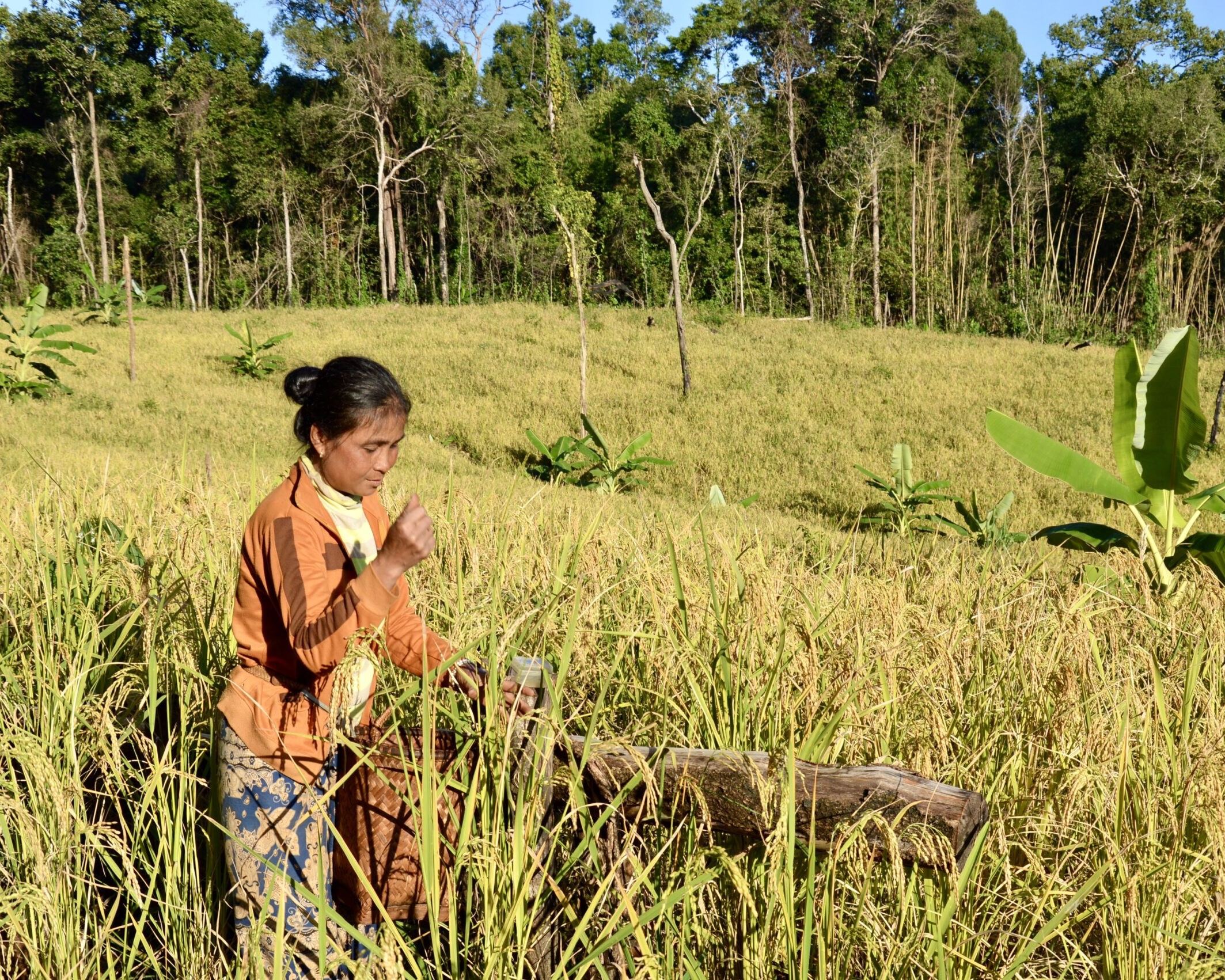Madera plástica
Inspired by a successful model developed in Medellín, OneAction aims to provide a solution to the accumulation of plastic waste in affected areas by transforming it into a building material.
Location
Topics
Beneficiaries
Direct
50+ recyclers
7+ employees
5’000+ participants in workshops
25’000 inhabitants with access to local, sustainable and accessible material
Indirect
The populations of the project’s target areas
Impact
22,5 tonnes of plastic waste processed each month
50 recyclers benefit from a regular income
20% less wood used in the construction sector in favour of “plastic wood” in the target areas
Context
Scientists estimate that about 80% of plastics in the oceans come from land-based sources, and the remaining 20% from marine sources. Thus, most plastic waste results from poor solid waste management in cities and towns, including low and inconsistent collection coverage, open dumping and incineration, and poor conditions for recyclers.
For many countries, the issue of waste – especially plastic waste – is increasingly becoming an environmental emergency. Contamination of rivers and soils threatens entire ecosystems and the livelihoods of local populations.
Our partner
In setting up such a project, OneAction would work primarily in partnership with the Colombian NGO Llena una botella de amor and the company Econciencia, who would assist in the replication of their model in another context as well as in its implementation, including planning and training of employees.
The implementation of such a project requires a multi-stakeholder approach, with the collaboration of:
- a qualified and well-established local NGO, which owns and manages the facility;
- a solar energy company that advises on solar energy and provides an efficient solar energy system for the factory;
- a supplier of building materials who opens the market to the local NGO by buying “plastic wood” and selling it in outlets in the project area;
- a construction company building houses or parts of houses, furniture and public infrastructure (pavements, bridges, benches, fences, etc.) out of “plastic wood”;
- recyclers;
- families, schools and companies who participate through collection initiatives or by depositing industrial waste.
The project
OneAction is currently exploring the potential for replicating the plastic recycling technology successfully developed by Econciencia in Medellín in areas where local communities have expressed the need to develop comprehensive and affordable waste management and social housing solutions. OneAction is in discussion with potential implementation partners in countries from India to Colombia and would support the development of a processing facility designed to turn plastic waste into “plastic wood”.
“Plastic wood” is a building material made of 98% plastic waste and 2% minerals, contributing to the recycling of plastic waste that is currently mainly incinerated or landfilled – such as polystyrene and polypropylene. Several tests on the final product have been carried out by the University of the Andes, ensuring that it is robust, light, durable, flexible, pest resistant and able to withstand high temperatures.
The initiative is designed as an ecological, circular and self-sustaining business model. Local communities would be involved not only at the beginning of the value chain – through awareness-raising campaigns – but would also benefit from the final product and the profits of the recycling plant, which would be redistributed to social, cultural and environmental projects.
The project in figures
3,5t
Plastic waste needed to build a 50m2 house
USD15000
Price of a 50m2 “plastic wood” house
4days
To build a “plastic wood” house
100%
Non-PVC plastic waste can be recycled by the plant
Expected outcomes
- The community’s recycling practices have improved and plastic waste in nature has decreased.
- Proliferation of landfills and deforestation practices have been reduced.
- The project addresses the growing need for sound and affordable housing
- Community infrastructure such as benches and bus shelters are built from 'plastic wood'.
- Community recyclers improve their living conditions by having a stable source of employment.
- The local NGO achieves financial self-sufficiency through income from the processing plant.
Sustainability
- The factory gradually becomes self-sufficient and OneAction can withdraw.
- The expected profits are reinvested in the development of the factory, the search for new markets and the funding of social, environmental and cultural initiatives led by other local NGOs.
- The lifespan and resistance of 'plastic wood' to the elements is superior to conventional wood from forests.
- Technology training and awareness-raising activities in targeted communities and municipalities are leading to sustainable change.
« . »
— Adriana Bueno, Founder of Hábitat Sur
Our projects
Together with its partners, OneAction develops initiatives to protect nature and empower communities. These initiatives are designed to be holistic, sustainable and locally owned. In most cases, self-financing mechanisms are included in order to create models that can be replicated in different contexts.
Tree planting in Switzerland
OneAction works to conserve the Western Andean Forest in the Intag Valley, one of the ten most biodiverse regions in the world.
Humus & humans
This agroforestry project uses the extraordinary potential of oxalogen species in inhabited areas among those most affected by climate change.
From the source to the forest
OneAction works to conserve the Western Andean Forest in the Intag Valley, one of the ten most biodiverse regions in the world.
Reunited under the canopy
OneAction creates public-private partnerships in Geneva and the Lake Geneva region to increase vegetation cover in urban areas.
The wings of knowledge
In Quito, OneAction is working with the INEPE to spread its internationally recognised holistic education model, while generating new sources of self-financing.
A future of possibilities
In Bihar, OneAction promotes access to quality education for children from the most disadvantaged backgrounds.
Tree planting in Switzerland
OneAction works to conserve the Western Andean Forest in the Intag Valley, one of the ten most biodiverse regions in the world.
Humus & humans
This agroforestry project uses the extraordinary potential of oxalogen species in inhabited areas among those most affected by climate change.
From the source to the forest
OneAction works to conserve the Western Andean Forest in the Intag Valley, one of the ten most biodiverse regions in the world.
Reunited under the canopy
OneAction creates public-private partnerships in Geneva and the Lake Geneva region to increase vegetation cover in urban areas.
The wings of knowledge
In Quito, OneAction is working with the INEPE to spread its internationally recognised holistic education model, while generating new sources of self-financing.
A future of possibilities
In Bihar, OneAction promotes access to quality education for children from the most disadvantaged backgrounds.
Tree planting in Switzerland
OneAction works to conserve the Western Andean Forest in the Intag Valley, one of the ten most biodiverse regions in the world.
Humus & humans
This agroforestry project uses the extraordinary potential of oxalogen species in inhabited areas among those most affected by climate change.
From the source to the forest
OneAction works to conserve the Western Andean Forest in the Intag Valley, one of the ten most biodiverse regions in the world.
Reunited under the canopy
OneAction creates public-private partnerships in Geneva and the Lake Geneva region to increase vegetation cover in urban areas.
The wings of knowledge
In Quito, OneAction is working with the INEPE to spread its internationally recognised holistic education model, while generating new sources of self-financing.
A future of possibilities
In Bihar, OneAction promotes access to quality education for children from the most disadvantaged backgrounds.
Our projects
Together with its partners, OneAction develops initiatives to protect nature and empower communities. These initiatives are designed to be holistic, sustainable and locally owned. In most cases, self-financing mechanisms are included in order to create models that can be replicated in different contexts.
Tree planting in Switzerland
OneAction works to conserve the Western Andean Forest in the Intag Valley, one of the ten most biodiverse regions in the world.
Humus & humans
This agroforestry project uses the extraordinary potential of oxalogen species in inhabited areas among those most affected by climate change.
From the source to the forest
OneAction works to conserve the Western Andean Forest in the Intag Valley, one of the ten most biodiverse regions in the world.
Reunited under the canopy
OneAction creates public-private partnerships in Geneva and the Lake Geneva region to increase vegetation cover in urban areas.
The wings of knowledge
In Quito, OneAction is working with the INEPE to spread its internationally recognised holistic education model, while generating new sources of self-financing.
A future of possibilities
In Bihar, OneAction promotes access to quality education for children from the most disadvantaged backgrounds.
Past projects
Here are some of OneAction’s past projects.
GreenAction
OneAction developed pedagogical gardens in several schools in French-speaking Switzerland to strengthen the connection between students and nature.
Papa china en Amazonía
OneAction supported the empowerment of Amazonian women through the sustainable production of papa china, a food tuber.
Conservation in Mondulkiri
OneAction developed economic alternatives to deforestation to protect the Seima forest and empower the Bunong minority in Mondulkiri.
Conservation in Mondulkiri
OneAction developed economic alternatives to deforestation to protect the Seima forest and empower the Bunong minority in Mondulkiri.
Papa china en Amazonía
OneAction supported the empowerment of Amazonian women through the sustainable production of papa china, a food tuber.
GreenAction
OneAction developed pedagogical gardens in several schools in French-speaking Switzerland to strengthen the connection between students and nature.
Conservation in Mondulkiri
OneAction developed economic alternatives to deforestation to protect the Seima forest and empower the Bunong minority in Mondulkiri.
Papa china en Amazonía
OneAction supported the empowerment of Amazonian women through the sustainable production of papa china, a food tuber.
GreenAction
OneAction developed pedagogical gardens in several schools in French-speaking Switzerland to strengthen the connection between students and nature.
Past projects
Here are some of OneAction’s past projects.
GreenAction
OneAction developed pedagogical gardens in several schools in French-speaking Switzerland to strengthen the connection between students and nature.
Papa china en Amazonía
OneAction supported the empowerment of Amazonian women through the sustainable production of papa china, a food tuber.
Conservation in Mondulkiri
OneAction developed economic alternatives to deforestation to protect the Seima forest and empower the Bunong minority in Mondulkiri.
Conservation in Mondulkiri
OneAction developed economic alternatives to deforestation to protect the Seima forest and empower the Bunong minority in Mondulkiri.
Papa china en Amazonía
OneAction supported the empowerment of Amazonian women through the sustainable production of papa china, a food tuber.
GreenAction
OneAction developed pedagogical gardens in several schools in French-speaking Switzerland to strengthen the connection between students and nature.
Conservation in Mondulkiri
OneAction developed economic alternatives to deforestation to protect the Seima forest and empower the Bunong minority in Mondulkiri.
Papa china en Amazonía
OneAction supported the empowerment of Amazonian women through the sustainable production of papa china, a food tuber.
GreenAction
OneAction developed pedagogical gardens in several schools in French-speaking Switzerland to strengthen the connection between students and nature.


